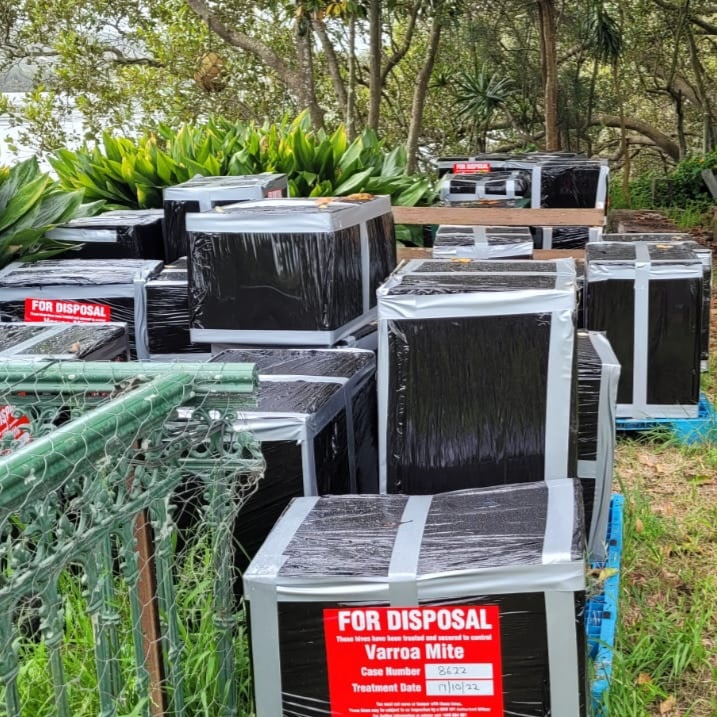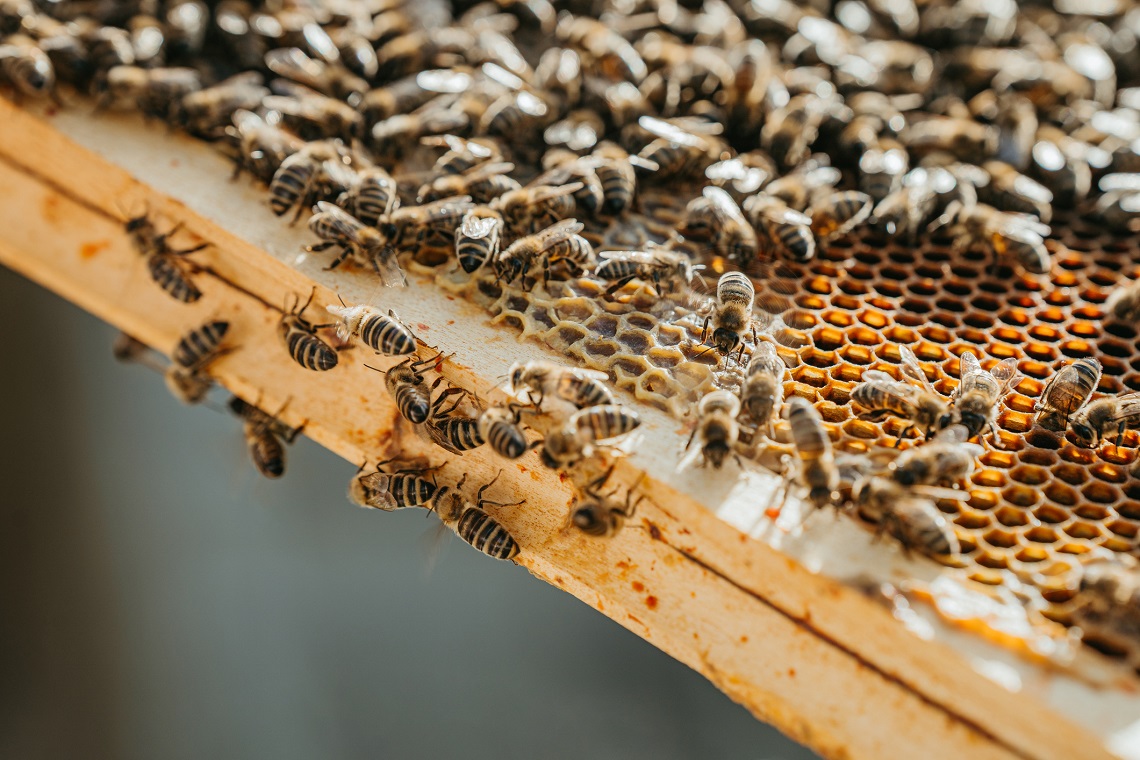Honey Wines Australia, a mead manufacturer business in the NSW Hunter Valley, has reported the loss of 90 per cent of its bee hives due to the Varroa mite hive cull.
The NSW Government’s Department of Primary Industries (NSW DPI) first reported detecting the Varroa mite in biosecurity surveillance hives of the Port of Newcastle in June. Since then, it has been undertaking an eradication plan, citing that as Australia is the only major honey producing country free from the Varroa mite, it could reportedly cost the honey industry more than $70 million a year. Mead is of course reliant on this, as fermented honey is its primary ingredient.
The eradication plan included the establishment of ‘red zones’ where the mite has been detected, in which hives would be euthanised. Beekeepers such as Martin and Angelica Jackson, the owners of Honey Wines Australia, have anxiously watched these zones expand over recent months.
Such an eradication plan has proved contentious to many in the region and state. One petition against the cull has racked up almost 27,000 signatures so far, calling for the NSW DPI to end the cull and release the modelling underpinning the strategy.

The Jacksons said they were supportive of the NSW DPI plan despite the devastation of losing so much of their hives in the cull, noting the critical need to keep the Varroa mite out of the Australian honey industry.
After losing such a high proportion of the honey supply, Martin said Honey Wines Australia would be turning to local producers.
“We will likely have to source raw honey from other local beekeepers in the Hunter Valley area until we build up our beehives again at our new property in Broke (which hopefully will remain a safe zone). This will allow us to retain consistent flavour in our meads – Hunter Valley honey has a delicious flavour so we don’t want to lose that,” he said.
With Honey Wines Australia now rebuilding its hives, Martin shared some concerns that he and Angelica had about the effectiveness of the Varroa mite response. While the emergency team were quick to act once they had discovered their hives, there was some confusion beforehand.
“Most of my beekeeper friends (myself included) have assumed that by being a registered beekeeper the team responsible for the euthanisation would already have our details. In the middle of October, I worried about why it was taking so long to be contacted and phoned the DPI who redirected me to the Exotic Plant & Pest Hotline – it was only then did I realise they had no idea our 58 beehives in the Toronto area existed,” Martin said.
“From what I can tell it seems the DPI isn’t sharing registered beekeepers’ details and instead relying on them to self-report. Given that multiple friends of mine were also waiting to be contacted, I expect many more would be in the same situation and not realise they have to self-report.”
As the NSW DPI now also turns its anti-Varroa mite action to also manage impacted wild European honey bee populations up to the mid north coast, it has commended bee keepers like the Jacksons for their surveillance and announced reimbursement payment options under the National Response Plan.
Minister for Agriculture, Dugal Saunders said: “Beekeepers have been at the centre of our emergency response since Varroa mite was confirmed through routine surveillance in sentinel hives near the port of Newcastle in late June.
“While we know our eradication measures are crucial to the ongoing viability of our industries, they have significantly impacted beekeepers, which is why this package of support measures is so critical.
“Beekeepers have been through some really difficult times in the past few months in the fight to eradicate Varroa, and this funding will help them get back on their feet and start to plan for the future.”

